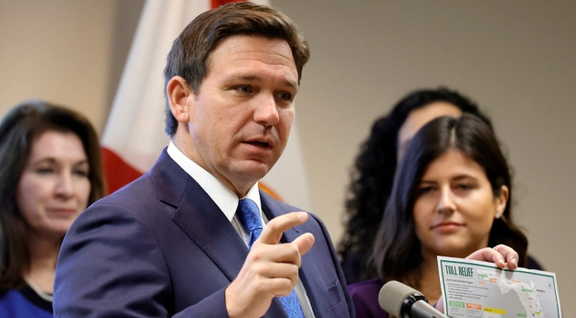DeSantis Signs ‘Anti-Woke’ Law; Treasury Warns of National Security Risks

Florida Governor Ron DeSantis recently signed a controversial new law aimed at preventing banks from freezing the accounts of Floridians based on their political beliefs. This legislation, which DeSantis describes as an “anti-woke” measure, is intended to protect individuals from financial discrimination. However, the U.S. Treasury has voiced significant concerns, suggesting that the law could jeopardize national security.
Key Provisions of the Law
The new law prohibits financial institutions from denying services or freezing accounts based on a customer’s political views. DeSantis argues that this legislation is necessary to safeguard Floridians from what he terms “corporate activism” and to ensure that financial decisions are made based on economic criteria rather than political bias.
Political and Public Reactions
Supporters of the law see it as a critical defense against ideological discrimination, arguing that individuals should not face financial repercussions for their political beliefs. DeSantis stated, “Floridians should not have to worry that their bank accounts will be closed based on their political opinions. This law is about protecting freedom and preventing discrimination.”
Opponents, however, contend that the law is a solution in search of a problem, asserting that there is no widespread evidence of banks discriminating against individuals based on their political views. Critics also argue that the law could create legal and operational challenges for financial institutions.
Treasury’s National Security Concerns
The U.S. Treasury Department has raised alarms, suggesting that the law could have unintended consequences for national security. According to the Treasury, the legislation may hinder the ability of banks to comply with federal anti-money laundering (AML) and counter-terrorist financing (CTF) regulations. These regulations require financial institutions to monitor and report suspicious activities, which can sometimes involve scrutinizing accounts linked to politically exposed persons.
A Treasury spokesperson commented, “This law undermines essential compliance mechanisms that help safeguard our financial system from misuse by terrorists, criminals, and other threats. It poses a risk to the integrity of our national security framework.”
Broader Implications
The clash between state-level initiatives and federal regulations highlights the complex interplay between protecting individual freedoms and ensuring national security. As this law goes into effect, it will likely prompt further debate and legal scrutiny, particularly regarding its compatibility with federal financial regulations.





